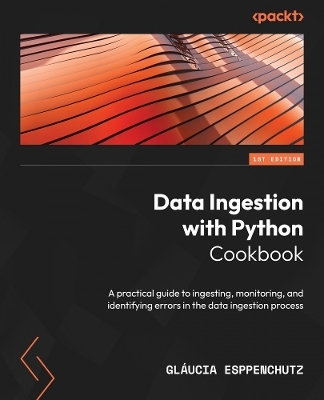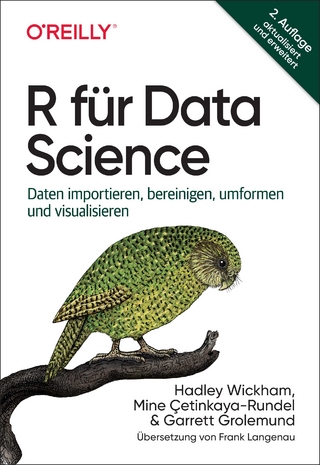
Data Ingestion with Python Cookbook
Packt Publishing Limited (Verlag)
978-1-83763-260-2 (ISBN)
Key Features
Harness best practices to create a Python and PySpark data ingestion pipeline
Seamlessly automate and orchestrate your data pipelines using Apache Airflow
Build a monitoring framework by integrating the concept of data observability into your pipelines
Book DescriptionData Ingestion with Python Cookbook offers a practical approach to designing and implementing data ingestion pipelines. It presents real-world examples with the most widely recognized open source tools on the market to answer commonly asked questions and overcome challenges.
You’ll be introduced to designing and working with or without data schemas, as well as creating monitored pipelines with Airflow and data observability principles, all while following industry best practices. The book also addresses challenges associated with reading different data sources and data formats. As you progress through the book, you’ll gain a broader understanding of error logging best practices, troubleshooting techniques, data orchestration, monitoring, and storing logs for further consultation.
By the end of the book, you’ll have a fully automated set that enables you to start ingesting and monitoring your data pipeline effortlessly, facilitating seamless integration with subsequent stages of the ETL process.What you will learn
Implement data observability using monitoring tools
Automate your data ingestion pipeline
Read analytical and partitioned data, whether schema or non-schema based
Debug and prevent data loss through efficient data monitoring and logging
Establish data access policies using a data governance framework
Construct a data orchestration framework to improve data quality
Who this book is forThis book is for data engineers and data enthusiasts seeking a comprehensive understanding of the data ingestion process using popular tools in the open source community. For more advanced learners, this book takes on the theoretical pillars of data governance while providing practical examples of real-world scenarios commonly encountered by data engineers.
Gláucia Esppenchutz is a data engineer with expertise in managing data pipelines and vast amounts of data using cloud and on-premises technologies. She worked in companies such as Globo, BMW Group, and Cloudera. Currently, she works at AiFi, specializing in the field of data operations for autonomous systems. She comes from the biomedical field and shifted her career ten years ago to chase the dream of working closely with technology and data. She is in constant contact with the open source community, mentoring people and helping to manage projects, and has collaborated with the Apache, PyLadies group, FreeCodeCamp, Udacity, and MentorColor communities.
Table of Contents
Introduction to Data Ingestion
Principals of Data Access – Accessing your Data
Data Discovery – Understanding Our Data Before Ingesting It
Reading CSV and JSON Files and Solving Problems
Ingesting Data from Structured and Unstructured Databases
Using PySpark with Defined and Non-Defined Schemas
Ingesting Analytical Data
Designing Monitored Data Workflows
Putting Everything Together with Airflow
Logging and Monitoring Your Data Ingest in Airflow
Automating Your Data Ingestion Pipelines
Using Data Observability for Debugging, Error Handling, and Preventing Downtime
| Erscheinungsdatum | 11.07.2023 |
|---|---|
| Verlagsort | Birmingham |
| Sprache | englisch |
| Maße | 191 x 235 mm |
| Themenwelt | Informatik ► Datenbanken ► Data Warehouse / Data Mining |
| Mathematik / Informatik ► Informatik ► Theorie / Studium | |
| ISBN-10 | 1-83763-260-X / 183763260X |
| ISBN-13 | 978-1-83763-260-2 / 9781837632602 |
| Zustand | Neuware |
| Informationen gemäß Produktsicherheitsverordnung (GPSR) | |
| Haben Sie eine Frage zum Produkt? |
aus dem Bereich


